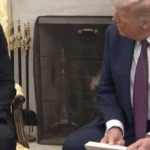Tech billionaire Elon Musk is attempting to shift a lawsuit regarding his controversial $1 million giveaway to registered voters into federal court, circumventing a scheduled appearance in Pennsylvania. The legal maneuver, described as a “motion of removal,” was filed by Musk’s attorneys late Wednesday night, shortly before a hearing set for Thursday in the Philadelphia Court of Common Pleas.
Judge Angelo Foglietta announced that he no longer has jurisdiction over the case due to Musk’s filing. The lawsuit, initiated by Philadelphia District Attorney Larry Krasner, will now proceed in federal court, although Krasner will have the opportunity to argue for the case’s return to Pennsylvania state court. This development likely delays the Thursday hearing.
The lawsuit centers on Musk’s daily $1 million sweepstakes, organized by his pro-Trump super PAC, America PAC, which targets registered voters in key battleground states. Musk’s legal team argues that the lawsuit, although framed as state-law violations concerning nuisance and consumer protection, is primarily aimed at preventing alleged interference with the upcoming federal presidential election.
Musk’s lawyers contend that the issues raised by Krasner’s lawsuit involve significant questions of federal law that fall under the jurisdiction of federal courts. During the Thursday hearing, Judge Foglietta challenged the prosecutors on their assertion that Musk’s giveaway constituted an illegal lottery in violation of state law. He pointed out inconsistencies in their claims regarding election integrity, highlighting that the sweepstakes is open to all registered voters, not exclusively to Republicans or Trump supporters.
In response, Krasner’s legal team preemptively countered Musk’s claims, asserting that the case revolves around violations of Pennsylvania’s laws against illegal lotteries and consumer deception. This marks Musk’s first formal response to allegations of running a potentially unlawful lottery while attempting to influence the 2024 election.
Derek Muller, an election law expert at Notre Dame Law School, noted that while Musk has the right to seek federal jurisdiction, the move would delay proceedings, as it introduces the case to a new court and judge. Muller emphasized that the federal court will likely aim to resolve the matter swiftly due to the impending election.
Krasner, a Democrat and self-described progressive prosecutor, filed the lawsuit on Monday, requesting a court order to halt what he termed an “illegal lottery.” On the same day, he asked for enhanced security for the upcoming hearing after reportedly facing threats from Musk’s supporters, including “antisemitic attacks” on social media.
Musk, who endorsed Trump in July and has donated $118 million to his super PAC, continues to defend the sweepstakes. Despite the ongoing lawsuit and warnings from the Justice Department about potential violations of federal election laws, the PAC is still announcing daily winners. As the legal proceedings unfold, the implications of Musk’s giveaway on the election remain a focal point of scrutiny.









